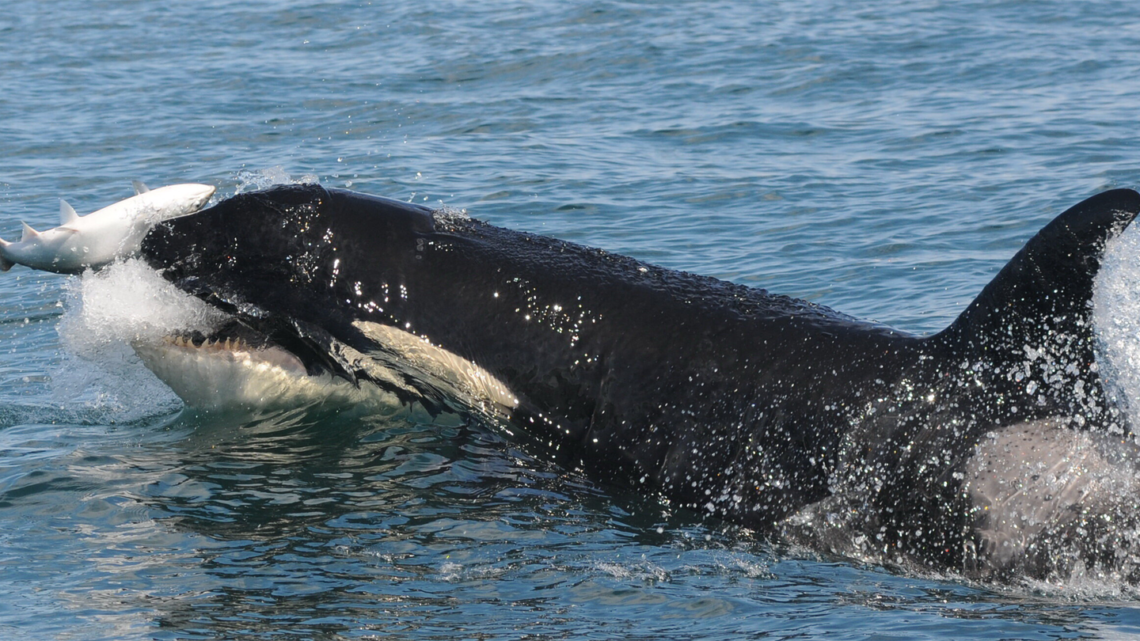One of the planet’s most capable apex predators, orca whales can take on great white sharks all by themselves, attack boats, and have tight matrilineal family bonds. Now, a new study combined tagging data, physiology, drone footage, and statistical analysis to confirm a long-held assumption. Orcas take only one breath between their dives. The findings are described in a study published May 15 in the journal PLOS ONE and could have some important conservation implications.
The study observed 11 northern and southern resident killer whales off the coast of British Columbia, Canada. Resident killer whales are an ecotype that specialize in eating salmon, particularly large, fatty, and nutritious Chinook salmon. By comparison, transient or Biggs killer whales will eat bigger prey including other marine mammals, including sea lions, dolphins, and other whales.
“This study was really started to try to get a better understanding of the energy requirements of resident killer whales in BC,” study co-author and a University of British Columbia (UBC) Master’s candidate Tess McRae tells PopSci. “Our northern resident killer whales are threatened and our southern resident killer whales are endangered. So, it’s really important for us to know how much energy these whales are using, and then kind of on the flip side, how much food these whales need to survive.”
[Related: How crafty orca whales hunt near submarine canyons.]
Like with humans, killer whales need to breathe more when they are engaged in higher energy activities like hunting for food or traveling long distances so that they can get more oxygen into their bodies. To monitor the whales in the wild, the team used tags suction cupped to 11 orcas to gather data, including diving depths, acoustics, and biological data.
“It’s essentially like putting a Fitbit on the animals,” study co-author and UBC post-doctoral research fellow Dr. Beth Volpov tells PopSci….
Read the full article here

